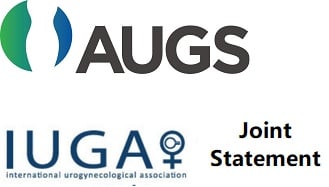 In November 2022, the American Urogynecologic Society (AUGS) and International Urogynecological Association(IUGA) released a joint clinical consensus statement that could signal a big change in how the urology industry approaches surgery. So what was important enough to bring these multinational experts together?
In November 2022, the American Urogynecologic Society (AUGS) and International Urogynecological Association(IUGA) released a joint clinical consensus statement that could signal a big change in how the urology industry approaches surgery. So what was important enough to bring these multinational experts together?
After conducting a review, the AUGS and IUGA reached multiple findings concerning enhanced recovery after surgery (ERAS) – and its implications for clinical outcomes and care costs. The joint statement offered multiple recommendations geared toward optimizing patient management. Here are the details.
The Motivation
Lowering risk and improving patient outcomes are vitally important goals in urogynecology and female pelvic medicine and reconstructive surgery (FPMRS). Unfortunately, there's no universal standard.
Patients might experience significantly different care procedures – including everything from how long they're hospitalized to what kind of post-op analgesia they receive – depending on where they seek care.
ERAS programs work to shift this dynamic with a few distinct goals in mind, like reducing recovery times, lowering intervention costs, and avoiding complications. As a multimodal approach, it typically involves surgeons, nursing staff, anesthetists, and ERAS coordinators working together to provide pre-op counseling, improve nutrition, bypass high-risk analgesia treatments, and promote the use of minimally invasive procedures.
Sounds promising, right? Well, the AUGS-IUGA team wanted to be sure, so they conducted an extensive review.
The Methodology
The reviewers – and a dedicated research librarian – used a range of terms to find literature that met a few key criteria: The studies had to be published between January 2001 and March 2021, focus on adult patients, exclude editorials, and relate to enhanced recovery following female urogynecological procedures.
While only English-language studies were included, the researchers used multiple medical databases, including Scopus, Web of Science, and PubMed, to name a few. The team assessed the studies' conclusions and the quality of their evidence as per the Grading of Recommendations, Assessment, Development, and Evaluation (GRADE) guidelines.
The Recommendations
The reviewers didn't just make a recommendation on ERAS in general. They broke things down further, addressing the role of enhanced recovery protocols in elderly populations and across the treatment lifecycle.
Older Patient Populations and ERAS
The AUGS and IUGA reviewers concluded that standard ERAS protocols are safe and feasible in older patients undergoing colorectal resection surgeries, but there's still a need for caution. Caregivers must consider chronological age, frailty, and similar factors in depth when treating these populations.
Preoperative Treatment
Preadmission information, counseling, and education play a big role in ERAS protocols – but there isn't quite a uniform standard. For instance, patients may receive video education or in-person pre-op counseling.
The joint consensus statement acknowledged this variance and the low quality of supporting evidence, but it still made a strong recommendation on patient communication based on the lack of evidence of harm. According to the reviewers, patients should meet with all members of their medical teams for counseling and detailed information about each procedure, not to mention receive information both orally and in written form.
Prehabilitation may also help reduce postoperative complications. Patients should usually fast before surgery – no surprise – but it's critical to account for each individual's needs. For instance, those with delayed gastric emptying should fast overnight or for 8 hours as opposed to the standard 6-8 hours.
Interoperative Treatment
What about the interoperative phase? When it came to standard anesthetic protocol, the reviewers recommended the use of short-acting anesthetic agents. For fluid management, they highlighted the need for a total reversal of neuromuscular blockade, lung-protective ventilatory management, and the administration of interoperative multimodal analgesia.
Venous thromboembolisms (VTEs) and surgical site infections also earned notice as key issues in urogynecological surgical procedures. After all, they contribute to morbidity and mortality yet are often preventable.
The statement identified many potential remedies for these hurdles, including the case-by-case use of thromboprophylaxis, avoidance of hair removal and drains, and thorough surgical site preparation. As you might expect, minimally invasive surgical procedures should be favored over laparoscopies.
Postoperative Treatment
Finally, the statement addressed ways to improve care after procedures, including multimodal analgesia. Some of the recommendations, like avoiding vaginal packing and promptly removing urinary drainage catheters, pointed to a possible need to rethink current standards.
Takeaways
In all, the recommendations painted a picture of ERAS as a group effort that works best with knowledgeable leadership at the helm and good communication between ERAS team members and caregiving staff. A range of factors have to align for enhanced recovery practices to do their job properly – and merely trying to tick all of the recommended boxes isn't going to work. It's critical to implement a team-centric approach that not only implements each protocol correctly but also audits compliance and results to ensure positive outcomes.
If your practice or department needs help with urodynamics, please reach out to us by clicking the button below. We provide urology, urogynecology, and ObGyn practices and departments with both turn-key urodynamics testing and urodynamics staffing support.


